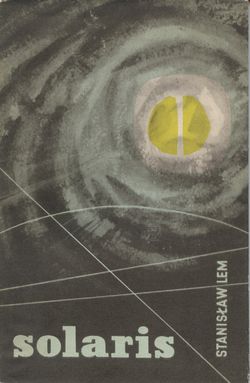
Reading The Precipice, I noticed a particular phrase that sounded familiar.
Neither the sciences nor the humanities have yet found any upper bound. We get some hit at what is possible during life's best moments: glimpses of raw joy, luminous beauty, soaring love. Moments when we are truly awake. These moments, however brief, point to possible heights of flourishing far beyond the status quo, and far beyond our current comprehension.
Our descendants could have aeons to explore these heights with new means of exploration. And it's not just wellbeing. Whatever you value - beauty, understanding, culture, consciousness, freedom, adventure, discovery, art - our descendants would be able to take these so much further, perhaps even discovering entirely new categories of value, completely unknown to us. Music we lack the ears to hear.
The Precipice (2020) Toby Ord
The last sentence also crops up in Will's TED talk from a couple of years ago.
So if this is kind of a graph of how humanity has progressed in terms of total human flourishing over time, well, this is what we would expect future progress to look like. It's vast.
Here, for example, is where we would expect no one to live in extreme poverty. Here is where we would expect everyone to be better off than the richest person alive today. Perhaps here is where we would discover the fundamental natural laws that govern our world. Perhaps here is where we discover an entirely new form of art, a form of music we currently lack the ears to hear.
What are the most important moral problems of our time? (2018) Will MacAskill TED talk (link)
It also appears on Bostrom's website from 2008.
Your brain’s special faculties: music, humor, spirituality, mathematics, eroticism, art, nurturing, narration, gossip! These are fine spirits to pour into the cup of life. Blessed you are if you have a vintage bottle of any of these. Better yet, a cask! Better yet, a vineyard!
Be not afraid to grow your collection: the mind’s cellars have no ceilings.
What other capacities are possible? Imagine a world with all the music dried up: what impoverishment, what loss! But give your thanks not to the lyre but to your ears for the music. And then ask yourself, what other harmonies are there in the air, that you lack the ears to hear?
Letter from Utopia (2008) Nick Bostrom (link)
I wondered what the origin of this strange fragment is from.
A quick Google search revealed it to be from Stanislaw Lem in his 1961 novel, Solaris.
The human mind is only capable of absorbing a few things at a time. We see what is taking place in front of us in the here and now, and cannot envisage simultaneously a succession of processes, no matter how integrated and complementary. Our faculties of perception are consequently limited even as regards fairly simple phenomena....
We observe a fraction of the process, like hearing the vibration of a single string in an orchestra of supergiants. We know, but cannot grasp, that above and below, beyond the limits of perception or imagination, thousands and millions of simultaneous transformations are at work, interlinked like a musical score by mathematical counterpoint. It has been described as a symphony in geometry, but we lack the ears to hear it.
Solaris (1961) Stanislaw Lem
As a growing fan of sci-fi, I decided to read Solaris and found it a very enjoyable book with lots of interesting ideas for the EA community.
Solaris tells the story of a group of astronauts trying to understand and grapple with hyperintelligent planet. Unlike most sci-fi which tends to anthropomorphise non-human intelligences, Lem made the choice to make his alien intelligence an ocean.
This frustrates the various efforts of humans trying to understand the planet, who are unable to find a similar model in their own experience. The few astronauts who continue to study it are dejected, and it stands in the way of humanity's vision of conquering all that it sees. Solaris remains an obstacle to human achievement. The plot of Solaris has much tension and kept me gripped, but the core theme is a melancholy reflection on humanity and our struggle to understand the other.
Man has gone out to explore other worlds and other civilizations without having explored his own labyrinth of dark passages and secret chambers, and without finding what lies behind doorways that he himself has sealed.
It's interesting to me that in these sections Ord, MacAskill, and Bostrom take one of the few lines in Solaris that speaks to the heights of the potential future of the human condition. And a flourishing future is indeed enthralling. But is there something greedily human about reaching and grasping for greater pleasure and experience?
From my perspective, the core point of Solaris is a deep reflection on what it means to be human. If artificial general intelligence arises on Earth, then perhaps it too will be a dark mirror for the rest of us.
The characters of Solaris are tormented by their sins from the past, and their parochial interests are exposed by an indifferent god-like entity, focused more on its own project than in conquering others in the way the humans are.
My favourite line is from Snow, a curmudgeonly old man on the station, transfixed by the mysteries of this chaotic ocean. He's asked whether he wants to return to Earth, and replies that he'd prefer to stay and study the ocean.
We're unlikely to learn anything about it, but we might learn something about ourselves.

It's nice to know the origin of that phrase.
I haven't read Lem's novel, but I very much enjoyed Andrei Tarkovsky's film adaptation. (I agree with Tyler Cowen that "all Takovsky movies are visually and conceptually brilliant".)